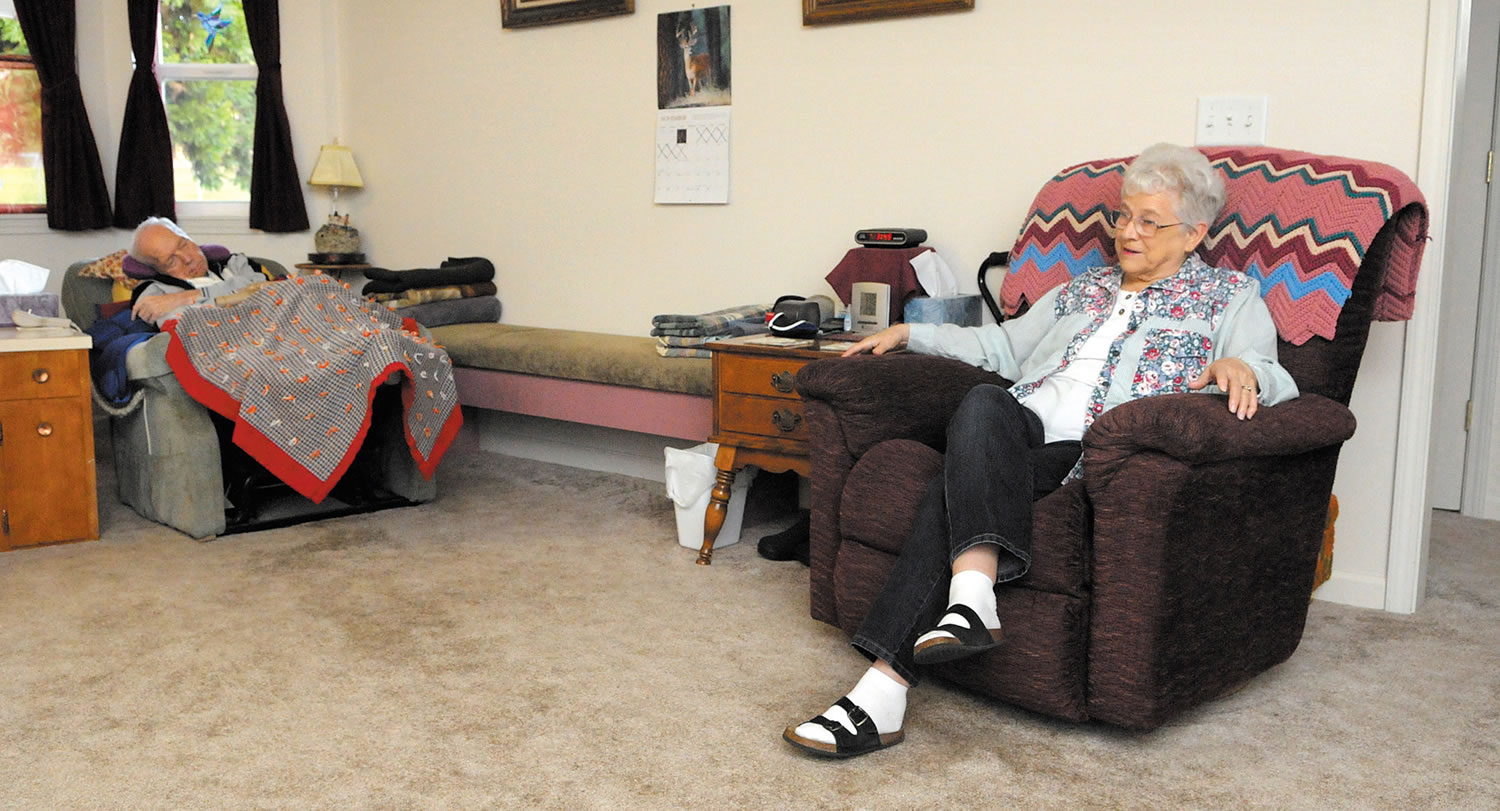ALBANY, Ore. — LouVee Walker doesn’t complain. She doesn’t feel sorry for herself. And she never shuns what she considers her duty.
Her tireless effort is all about love.
At 75, LouVee is a family caregiver who spends almost all of her time on call for her husband, Jim, 77. He has Lewy body dementia, which has left him immobile and requiring constant care. It’s a disease most haven’t heard of, but it’s not that rare.
“Over a million people have it,” LouVee said. “It’s very devastating.”
The Walkers live in Sweet Home, Ore., next to the home where Jim was born. He can do little for himself now. LouVee washes, dresses and feeds him.
“I never think about not doing it,” LouVee said.
That doesn’t mean there aren’t times she could use a break. Because of that, she found the Family Caregiver Support Program, run by Oregon Cascades West Senior & Disability Services.
It’s a service that has reached out to nearly 100 family caregivers in Linn and Benton counties.
“It can be 24/7 for some in our system,” said Deb Scobie, who heads the program from her Albany office. “Our job is to connect them with the kinds of services that are available that can make their job a little easier.”
Scobie said one of the most difficult things about family caregiving is that caregivers often fail to take care of themselves.
“They can wear out. It’s stressful and they need support,” Scobie said. “We try to give them a break.”
That might be finding someone to relieve a caregiver for a couple of hours to visit a doctor or go shopping. It might be finding a resource that makes the caregiving job just a little easier.
LouVee used the service to find Home Health, which provides someone to relieve her three times a week while she shops for groceries or other supplies.
“Sometimes there are friends and family who can help but sometimes that’s not possible,” Scobie said. “We make it a little easier for them to do what they do.”



